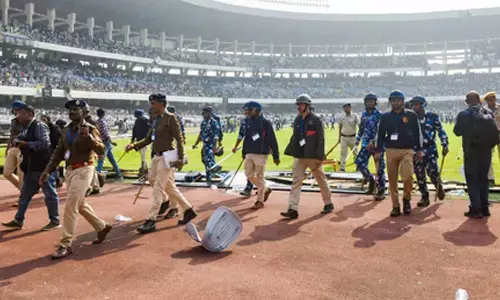Here is how prostate enlargement can be prevented

Raju (name changed), a 40-year-old man would sleep like a baby and nothing could disturb his sleep. However, since a few days he repeatedly started getting up in the night to go to the bathroom.
Raju (name changed), a 40-year-old man would sleep like a baby and nothing could disturb his sleep. However, since a few days he repeatedly started getting up in the night to go to the bathroom. Slowly these nightly bathroom trips became more and more frequent eventually affecting his daytime routine. He had trouble even sitting through a flight or a meeting without the constant need to go to the washroom.
According to statistics, 50 per cent of men develop enlarged prostate problems by the time they reach 50 years of age. Prostate enlargement gets very common as men age. Benign Prostatic Hyperplasia (BPH), a noncancerous enlargement of the prostate gland, makes urination difficult and uncomfortable.
The symptoms usually develop when a man reaches the age of 50. By the age of 60, most men have some degree of BPH. Studies suggest that by the time a man reaches the age of 85, they develop 90 per cent chances of having urination problems caused by BPH. Though BPH is generally the cause of enlarged prostate, at times prostate cancer can also be the reason behind it.
A BPH - Benign Prostatic Hyperplasia, prostate cancer or prostatitis cannot be treated if it is not detected. Not all prostate problems require immediate treatment; active surveillance, in lieu of immediate treatment, is an option that should be considered for some men.
Various prostate problems often have similar symptoms.
For example, one patient with BPH and another that has prostatitis may both have an urgent and frequent need for urination. A man with prostatitis may have to frequently urinate at night; and another with BPH may have problems starting an urination stream. Or, a patient at early levels of prostate cancer development may have no prostate symptoms at all.
The most common prostate problems symptoms are:
- Feeling of not emptying your bladder fully after you have completed urinating.
- Discontinuous urination.
- Limited or weak stream of urination.
- Feeling a burning pain arising during your urinating process.
- Decreased ability to hold and gain your erections, low ejaculation and dissatisfaction with intimate performance.
- Loss of appetite.
- Chills and fever.
- Pains in lower back, in the body zone between anus and testicles, in the upper thighs or lower belly, or above the pubic area. The pain may get worse during a movement in bowel.
- Straining and pushing are needed to start urination.
- It is difficult to postpone urinating.
- Frequent urinations (consistently during in periods of less than two hours and or many times during the night).
Even though one prostate condition doesn't lead to developing another one, knowing prostate disorders symptoms can help effectively take appropriate and timely actions for your prostate health.
A few tips to prevent prostate enlargement:
- Consume lean meats and low fat milk.
- Achieve better body circulation.
- Eat more foods containing selenium.
- Consume more foods containing zinc.
- Apply nutritional supplementation.
- Reverse organism damages.
- Rearrange your lifestyle to make it healthier.
- Consume at least two tomato sauce portions weekly.
- Eat oily fish meals weekly.
- Consume more meals containing soy.
- Minimise or exclude alcohol drinking from your daily lifestyle. -The writer is Consultant – Urology, Columbia Asia Hospitals.
By Dr Manohar T
















